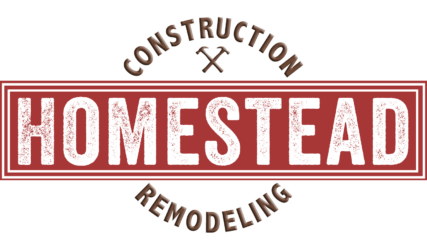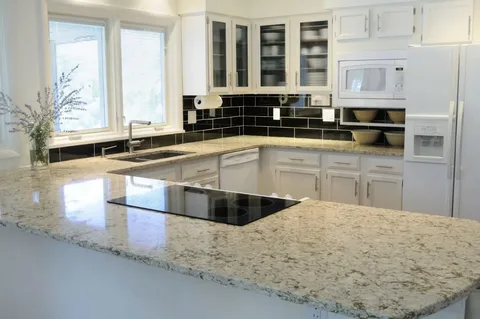The kitchen is often considered the heart of the home, and as such, the materials used in its design are crucial for both functionality and aesthetics. When it comes to kitchen countertops and cabinets, the right choice of materials can make a huge difference in how the space looks and performs.
Whether you’re renovating your kitchen or building one from scratch, choosing the best materials is essential. Factors such as durability, ease of maintenance, aesthetic appeal, and budget all come into play. In this guide, we will explore some of the best materials for kitchen countertops and cabinets, highlighting their unique benefits, drawbacks, and ideal uses.
Best Materials for Kitchen Countertops
Granite Countertops
Granite is one of the most popular countertop materials, known for its natural beauty and durability. It is a natural stone that is cut directly from quarries and polished for use in kitchen installations. Granite offers a timeless and elegant look, with each slab having unique patterns and colors.
Pros of Granite Countertops
Granite is extremely durable and resistant to heat, scratches, and stains. It can withstand heavy use without losing its integrity. The wide variety of colors and patterns available makes granite a versatile choice for various kitchen styles. With proper maintenance, granite countertops can last for decades, making it a solid investment for any kitchen.
Cons of Granite Countertops
Granite is porous and needs to be sealed periodically to prevent staining. It is generally more expensive than many other countertop materials, making it a higher-end option.
Quartz Countertops
Quartz countertops are engineered stone surfaces made from a combination of natural quartz crystals and resin. Unlike granite, quartz countertops are man-made, which allows for a wider range of colors and patterns. They are non-porous, making them resistant to stains and bacteria.
Pros of Quartz Countertops
Quartz countertops do not require sealing and are very easy to clean, making them low-maintenance. They are resistant to scratches, stains, and chips, making them a great choice for high-traffic kitchens. Since quartz is engineered, you get a more uniform appearance in terms of color and pattern.
Cons of Quartz Countertops
While quartz is heat-resistant, it is not as heat-tolerant as granite. Placing hot pots directly on the surface can cause damage. Like granite, quartz can be on the pricier side.
Marble Countertops
Marble is a classic, luxurious natural stone that adds a sophisticated touch to any kitchen. Known for its timeless appeal, marble features unique veining patterns that give it an elegant, high-end look.
Pros of Marble Countertops
Marble’s sleek, polished look is unmatched and provides an opulent feel to your kitchen. It is naturally heat-resistant, making it ideal for baking or working with hot cookware.
Cons of Marble Countertops
Marble is porous and can absorb liquids, leading to staining. It also scratches more easily compared to granite and quartz. Marble countertops require regular sealing and care to maintain their appearance.
Butcher Block Countertops
Butcher block countertops are made from solid wood that is cut and glued together to form large, seamless panels. They are an attractive, warm option that works well with both modern and rustic kitchen designs.
Pros of Butcher Block Countertops
The natural wood aesthetic adds warmth and character to the kitchen. If your butcher block gets scratched or worn, it can be sanded down and refinished to restore its original appearance. Ideal for chopping and food prep, making it a favorite among home chefs.
Cons of Butcher Block Countertops
Butcher block requires frequent oiling and sealing to prevent drying and cracking. Wood is susceptible to damage from knives, hot cookware, and spills.
Best Materials for Kitchen Cabinets
Solid Wood Cabinets
Solid wood cabinets are a classic choice for kitchens due to their durability, strength, and timeless appeal. They are available in a variety of wood types, including oak, cherry, maple, and walnut, each offering a unique look.
Pros of Solid Wood Cabinets
Solid wood cabinets are strong and built to last, with the ability to withstand wear and tear over time. Wood can be stained or painted in any color, allowing for a high degree of customization. The natural grains and textures of solid wood can add warmth and beauty to the kitchen.
Cons of Solid Wood Cabinets
Solid wood is typically more expensive than other cabinet materials. Wood can be affected by humidity and temperature changes, potentially leading to warping or cracking over time.
MDF (Medium-Density Fiberboard) Cabinets
MDF cabinets are made from compressed wood fibers and resin, creating a smooth, dense material. They are commonly used for more modern-style kitchens and can be painted or veneered to create a polished appearance.
Pros of MDF Cabinets
MDF cabinets have a very smooth, even surface, making them ideal for high-gloss finishes and paint jobs. MDF is typically less expensive than solid wood and provides a similar look without the high price tag. While not as strong as solid wood, MDF is still durable and resistant to warping or cracking.
Cons of MDF Cabinets
MDF can swell and degrade if exposed to excessive moisture, making it less suitable for high-moisture areas. While durable, MDF lacks the natural beauty and uniqueness of solid wood.
Plywood Cabinets
Plywood cabinets are made by layering thin sheets of wood veneer and bonding them together. Plywood is strong, stable, and resistant to warping, making it a solid choice for kitchen cabinets.
Pros of Plywood Cabinets
Plywood is very strong and resistant to moisture, making it a great option for kitchen environments. It is generally less expensive than solid wood but still offers a high-quality look. Unlike solid wood, plywood is less prone to expanding or contracting due to humidity changes.
Cons of Plywood Cabinets
The edges of plywood can show the layers of wood, which may not be as aesthetically pleasing unless properly finished. While plywood is versatile, it doesn’t have the same natural wood grain and texture as solid wood.
Conclusion
Choosing the best materials for your kitchen countertops and cabinets depends on your priorities, such as budget, durability, aesthetics, and maintenance. Granite and quartz countertops are both durable and low-maintenance, while marble offers luxury but requires more upkeep. For cabinets, solid wood provides a timeless look, but MDF and plywood offer more affordable and practical alternatives. Understanding the pros and cons of each material will help you make an informed decision that enhances both the functionality and style of your kitchen.
FAQs
Which Countertop Is Most Durable?
Granite and quartz are two of the most durable countertop materials. Both are resistant to scratches, heat, and stains, with granite being slightly more heat-resistant and quartz offering low-maintenance benefits.
What Type of Cabinets Is Best for a Budget-Friendly Kitchen?
For a budget-friendly kitchen, MDF or plywood cabinets are great options. They offer durability and a polished appearance without the high cost of solid wood cabinets.
Are Butcher Block Countertops High Maintenance?
Yes, butcher block countertops require regular maintenance. They need to be oiled periodically to prevent the wood from drying out or becoming damaged. However, they can be refinished if scratched or worn.
How Long Do Quartz Countertops Last?
With proper care, quartz countertops can last a lifetime. They are highly durable and resistant to stains, making them a long-lasting choice for your kitchen.

